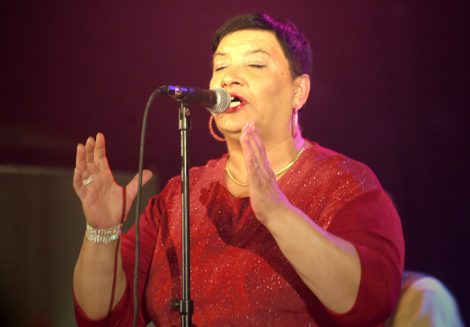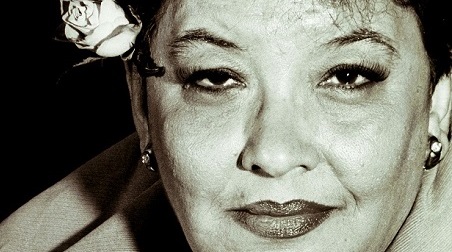I thought I knew that song. My mom sang it the most beautifully, with the piano. She still sings it wonderfully today, only the crowd that followed her with the guitar, the maligans and the drunk carp on St. Ignatius has thinned out a bit.
One July, I came back from the sea and a one-way ticket was waiting for me … then you went to the army by plane. I had one more night of civilian life and no idea how to spend it. I mean, the only world we knew was at the Academy, but that night I didn’t feel like wearing martins; the clogs were waiting for me in Pula anyway. Bestfriend and I chose Romani Tar; without any idea, well, it happened.
Romani Tar was an old hook, one of the last survivors from the era of great restaurants of the sixties-seventies: Lotika, Kasino, Manjež, Lion, Madera… More profitable cafes and clubs without much philosophy arrived. After all, there is a McDonald’s today at the site of the old Romani Tar … so be it.
The very sight of the orchestra was unusual: a concert piano, double bass, guitar and accordion. Introductory block – Tom Jones and Elvis, perfect with the outdated bangs of the gray-haired pianist. Young cash, middle hospitality on practice, he knew we didn’t belong there and circled around us as an associate member of the greenest in the cafe … Then the folklorists flew in, the team from Kolo was gigging over the summer to complete the program for foreign tourists; although we, realistically, were the only foreigners in the cafe, Mlađa and I.
And finally She. The tables stirred: Ljilja Ćora!

I had no idea who the lady was. It wasn’t necessary either, because a second later the crystal shook: I have one wish …
Compared to her greasy alto, Scott Walker or Bowie sounded like castrates; dark like the wind in the gutters, she revealed the other side of the romance I thought I knew. About lips and dreams: life was just waiting for me to meet him, and I have one wish he will wait for me on every curve of his, always different and different. For such a drive, her voice was not enough; neither was her gypsy gene, nor her musician parents. She knew the emptiness after the lips that open like a shell only once.
Ljiljana Petrović was not a self-grown flower: she was a city child and listened to city music. That will forever set her apart from the game of performers of Roma traditionals. She attended the Stanković music high school, listened to Arsen’s House by the Sea, blown away by the waves and summer … oh yes, whoever understands the most beautiful kiss of July can understand I have one wish.
It was not meant to graduate from Stanković, but she graduated from sevdalinka in Bosnia. That diploma will prove to be more important – whoever threw himself into the whirlpools of Ljiljana’s song, somewhere deep, very deep, would emerge sevdah. Or blues, it all comes down to the same thing.
Only she could sing long stories in three words in which they found and longed for: I can’t stop thinking about your lips, I can’t stop dreaming and making you out of the air; but I’ll be ok, just … I have one wish
With those three words, the tables collapsed Danilo Kiš, Duško Radović, Brana Petrović and others, broken between Ljiljana’s gypsy soul and their own dreams that they could not carry. The big Belgrade cafes stopped being cafes – from her alto each became a small Olympia in which they drank and suffered in devout silence.
She still hadn’t recorded ‘I have one wish’. She didn’t need it, she was the high priestess of the underground Belgrade of artists, bohemians and all kinds of wise men from whom Belgrade became juicy and refined. Before dawn, she let only Toma Z. and selected musicians into her company – following Ljilja Ćora was a matter of status among Belgrade musicians. The sun was waiting in some pub near Cvetko’s market; every such chillout was worth a book. Whoever didn’t cut the stale blue smoke with his fist along with her romances, he wasn’t young.
Then the money came for Ljilja. The Slovenians took her to the studio along with her old buddies from the gigs, and in about ten hours, the best record of Gypsy author music ever was recorded. They didn’t have time for mixing, overdubbing, and channel makeup, they had to work tomorrow too.
When Saša Habić was once asked how folk musicians record so briefly, and rockers for months (suggesting, perhaps, the superficiality of folk musicians), Habić was almost confused: ‘No, they are not superficial. Folk musicians know how to play…’
In Ljilja’s case, the lack of studio hours was just an extra dose of truth. Played and sung at first and masterfully, like a storm, it remained an invaluable document of time and a team that will no longer assemble.
The instantaneous and dazzling success did not take her out of the tavern – she was a much bigger star than the beans that needed spotlights and front pages; she was a star as soon as the orchestra quieted down to start its mute opera. Serious, without unnecessary gesticulations, she didn’t have to do anything. Lost souls of listeners approached on their own. In silence.
But silence was disappearing in the eighties. Slowly, but irreversibly. ‘City locals started to disappear, Ibarska highway started, where there was money. You know how, where they listened to you in silence, there was no money.’
She didn’t have the stomach for the new time, new taverns, and new manners. The icons of her Belgrade were leaving one by one, someone underground, someone out of the country, almost to think that they had hidden not to watch the decay; Toma, Brana, Duško, Alija, Danilo, Paja… She chose a new life. She got married, changed her last name, and settled in Germany. She cleaned houses and hotels, charged the toilet; Ljilja Ćora became a cleaning lady.
Her sixth sense did not betray her – in the bombing in 1999, her Belgrade house was completely destroyed. There is a heartbreaking scene in the BBC documentary as she walks through the ruins and cries: ‘…this is where my children were born…and I don’t see this ruin, I see what it was like when I was…’
She didn’t sing for 15 years: ‘I needed peace. And I didn’t miss the stage – I missed the song.’
No one knew where she was. Producer Dragi Šestić was looking for her unsuccessfully: ‘I simply had to find her. The search for Ljiljana lasted a long time – no one could give me the right information. Then Šaban Bajramović told me he knew someone who could give me more information about her. After a few months, I managed to get the right phone – she was in Dusseldorf, just a 2-hour drive from me! A few days after the phone call, I went to visit. I didn’t want to waste time – Ljiljana was shocked by my speed, and I think also by my enthusiasm.’
She refused him twice, the third time she gave in. Mostar Sevdah Reunion was already recording with Šaban Bajramović, but this was something else: they started from scratch and in two weeks they had an album. Again Habić: folk musicians know how to play…speed was the recipe for success, this time global, tangible, and countable. The repertoire was not genre-limited: these were Ljiljana’s tavern playlists, songs for dying and surviving.
It’s a little to say that Ljiljana became a world music star, she was a star always, both under the tent and under the spotlights. She was not at all confused by the events, fully aware of her strength and the place that belongs to her: ‘I need to sing a concert, and I can’t change, a full room of people. And on top of that some guy, mustache, all against me, pushing himself. I said: “What do you want?” I call Dragi: “Just get these blacks out of here. I want to change.” Dragi comes, he was shocked. He asks me: “Don’t you know who this is?!” I said, I have no idea, but I see who wants something, he’s old, I’m old. Dragi says: “Well, this is Carlos Santana.” And I say – who the hell is he.’
About Mostar Sevdah Reunion, many documentaries were made. The most famous ones were done by Pjer Žalica in 2000 and Mira Erdevicki in 2005 for BBC, and there is also one gem from Dutch television, a rare moment when Ljilja laughs. A smile that hurts everything:
‘The mother of gipsy soul’ finally brought the studio recording of ‘I have one wish’. Powerful and dark as in Romani Taru that night. One piano, one cello and Ljiljana, the one and only…so I never wake up…
Europe had no idea what she was singing, but it opened up equally to the magic of Mrs. Buttler as the offspring of Belgrade cafes in the sixties and seventies and their souls floated in the air, open and wounded by a voice that cannot be repeated. I usually can’t watch the recordings of her concerts to the end, I break down from the emotion that is amplified by the seduced song:
In those ten years, she recorded three albums for the Dutch publisher – an edition comparable only to the digitized opus of Vlastimir Pavlovic Carevac. She got everything…almost everything.
The last album, Frozen Roses, from 2008, was too dark even for her standards, and the cover of the album taken at the cemetery and the selection of heavy and slow songs almost ominous. Her sixth sense…the album was closed by Šereš’s Gloomy Sunday. The disease showed its ugly face a year later. I imagine the curse with which she sent off her gypsy luck: at the peak of her abilities, famous and finally accepted, she left the world under her feet. There is no justice in this world. Or is there?
Dragi Šestić says that the only unrealized album was the one where she would, like Nina Simone, play the piano and sing. She finished the other jobs, mostly, joined a better team in the heavenly pubs and returned to silence. I don’t go to cafes anymore; I prefer the fogs of these mornings. Or a dream: that your honey lips…
For P.U.L.S.E: Vladimir Alimpić

